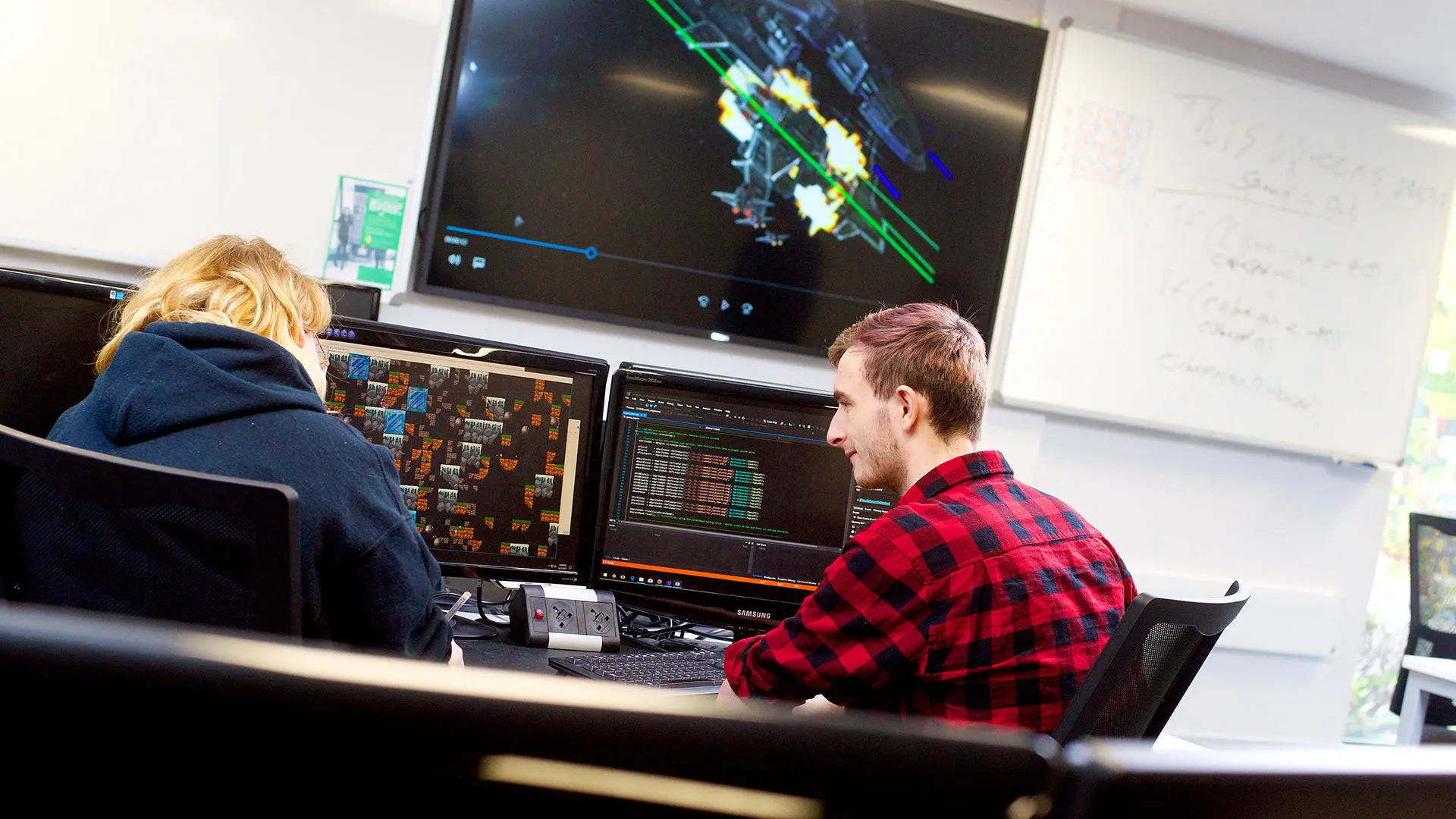Gaming is a global industry, with development studios and opportunities around the world. You could take a job in a city close to you, or in far-flung destinations such as the USA, Canada or China.
If you have a love for games and want a deeper understanding, then becoming a game developer is an amazing way to earn a living from your passion.
In this article we will cover the following main steps for anyone who wants to become a game developer:
Game development at a glance
- Average salary: £18,000 - £38,000 (prospects.ac.uk)
- Average working hours: 35-40 hour office hours, with expected overtime during end of development. Independent developers will likely have more irregular working hours.
- Employment opportunities: Full-time & part-time employment for large development companies or contractor work for more flexibility. You can also work independently as an ‘indie dev,’ making your own game to your own rules.
- Who is it for? Lovers of video games, programming, maths, and physics. Those with a technical skillset who want to do something creative and passion driven.
Learn the fundamentals
There are two key things to understand if you want to become a game developer – how to code with different programming languages and understanding game design.
With these two major skills at hand, you’ll be ready to start developing games at your own pace. You can do this in a number of ways.
Get some work experience
Once you’ve built up a varied portfolio, the next thing you’ll want to do is to start your career. Gaining job experience is the next step, and your portfolio will help with that when it comes to interviewing for roles at development studios.
You can look for entry-level jobs on the following websites:
You can also use generic job websites such as LinkedIn, Indeed and Google.
If a game development studio makes games you love, it’s always worth keeping an eye on their official website job listing board too.
Entry-level positions won’t pay the best, and the work might not be as involved as you might like it to be, but you’ll learn everything you need to know about the games industry. Gaining this knowledge and experience will help you secure more senior jobs in the future.
Go indie
One of the largest changes in the gaming industry over the past 20 years is the rise of independent development, or ‘indie devs.’
Indie development is perfect for those with a strong vision in what game they want to make. If you have an amazing idea, and you think it can be something successful, you can try making it by yourself or with a very small, close team.
Some of the best-selling games of all time were made by a single developer or by a very small team. Games such as Minecraft, Terraria or Stardew Valley were all made, or continue to be made, by an independent developer.
In any case, developing your own game will give you lots of experience and knowledge that you can choose to take to a larger employer if you ever wanted.
Game development FAQs
Take your next steps
- Course
Games Design, BA (Hons)

